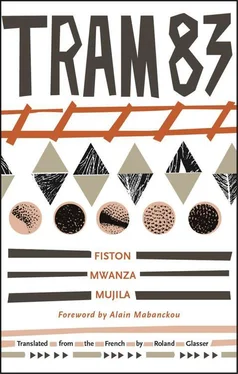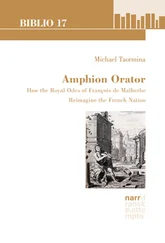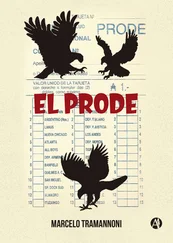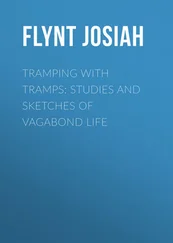“You might be right, I was also thinking of number 16. But why 16?”
“I was born on the 16th of May 1953.”
“My wife was also born on a 16th. My ex, I mean.”
He looked at him closely, and raised his arms to heaven like an explorer discovering a lost civilization.
“Just a vodka and ten pesos and I’ll let you leave.”
“I don’t have a penny, and even if I did, I hate informing, corruption.”
Lucien didn’t back down — what a guy! You have the chance to be let off, but stubbornly you continue to wallow in theories without legs or backbones. What future is there for a fella like that, a real chickenshit! If it was Requiem, he would negotiate his release without seeking unnecessary complication. Lucien, what a nutcase. All the Tram’s baby-chicks fantasized about him. They adored him, wanted to flirt with him, venerated him, enticed him. They stated, loud and clear, that he was the kindest man on earth. They were at his feet, imploring him: “Take us to your bed, we’ve never fucked an intellectual, let alone a writer.” But Lucien, beyond shame, took refuge in his texts, cloistered himself in his literature, quit the Tram when it was barely 10 P.M., refused to dance with the busgirl with fat lips who never took her eyes off him, while the rest of us daydreamed about such popularity among womankind. All these incongruities annoyed Requiem, for whom “Lucien,” to quote him, “is an insult to virility.”
Ever since an ethnologist had made a trip to Europe with a baby-chick, all the Tram girls pursued those few intellectuals who loafed about the City-State. They told anyone who’d listen that they too would find themselves an intellectual and that they’d go away with him — far from the Tram, far from the City-State, far from us — to Prague, Odessa, Zagreb, Budapest, Belgrade. That they would marry in great style, give birth to very beautiful children, then return to the Tram to ridicule the diggers, boycott the busgirl with fat lips, and get their revenge on the tourists who had felt up their breasts without paying the check. In bed, and even in the Tram’s mixed restrooms, they subtly modified the chronology of the foreplay when the client proved to be an intellectual. “Stroke my navel first and, while we’re at it, tell me about the Second World War. Teach me mathematics.”
The chief of police spoke without letup, argued, furnished his own view of the City-State, recalled his exploits during one of the many wars of liberation, criticized the Americans, and entangled Lucien in his contradictions.
“If you don’t make a gesture, what are my children going to eat?”
“You call that justice?”
“Yes.”
“I deplore …”
“One vodka and ten dollars, and freedom beckons.”
“I won’t sing from your hymn sheet!”
The chief of police began to laugh.
There was a knock at the door.
“Come in!”
Gilberto with a bottle.
“For you, sir.”
“Fall out!”
The chief of police rummaged in the garbage bag. An old cloth. He took two glasses that he wiped in the twinkle of an eye.
“You know, I’m the only one on this earth to still have his head on his shoulders. Sometimes I wonder how I do it. You deserve the gallows, all of you. You can go tell the dissident General that. I didn’t study law to show off, and I deliver justice in my own way. Do you know how much —”
“No thank you.”
Lucien pushed away the glass the chief of police held out to him.
“Do you know the pain I must endure when I find myself with individuals like you? Potentially innocent.”
The chief of police knocked back the first glass in one go. He picked up his portable radio and a cassette tape, The Legend of the Invisible City of Kitezh and the Maiden Fevroniya , by Rimsky-Korsakov.
“I love classical music. Each note contributes to a work of speleology, the speleology of the soul. What sensitivity, what depth! I was saying … I don’t know if you understand me … I am a father and you are not unaware that we no longer receive anything from this government. If I don’t make a move or if you refuse to budge, how do you expect me to make ends meet? I’m not like you guys and I don’t have the time to stroll about the mines. I am torn by my conscience. I accept gratuities from those I reckon innocent and I release them immediately. When I saw you, a spirit told me you were innocent, hence your presence in my office. The others, we don’t even do any paperwork. We chuck them in, period. But your family must have some clue regarding the initial steps to take. They should already set aside a nice, fat bribe. No nonsense, I’m serious. And if you’ve got sisters, don’t think twice. They can get your case progressed quite fast, I mean really fast!”
“I understand, but—”
The chief of police remained motionless, right hand over his heart.
“I love this part, listen to the spoken chorus, the splendor …”
He put down his glass, energetically rubbed his head.
“I can feel something truly …”
Lucien took advantage of his rapture to pour himself a shot.
“This music, it’s quite insane! It’s his masterpiece, just listen to that dialogue between the singing and the orchestra. The Russian Revival exhilarates me. He completed this monumental work after five years of hard toil. Can we go now?”
“Where?”
“You said no to my gratuity.”
“…”
Lucien stood up.
The music lover closed his files. He switched off the device. Opened his drawers. A belt.
“Hold this.”
He asked his prisoner to follow him.
“Thank you.”
They walked along damp, gloomy corridors, at the end of which …
“If you ever feel like discussing music, just let me know. Come and we’ll chat. I’m sure you’ll muddle through, you’re a winner, that’s obvious.”
… a dark room with bars. The very smell of a slave ship. An infernal noise.
“I beg you!”
Arms, legs, insults, wailing, shrill laughter, preaching, the self-assurance, warmth, pride, and majesty of a piano’s brushed ivories.
“My pleasure to have made your acquaintance.”
A salsa variant belted out by an individual as a sign of protestation.
“I exempt you from all torture.”
He wanted to explain himself but the police officers didn’t give him time.
“Sir, chief …”
In the blink of an eye, they opened the metal gate and pushed him in.
The guy shrieking his salsa broke off his rebellious lyricism to present his compliments, amid an unimaginable hubbub:
“Please accept, dear newcomer, our most harmonious and heartfelt greetings!”
Around six in the evening, five vans came to remove them to the former central prison.
The chief of police whispered a few words to him.
“You’ll muddle through, my man!
“I hope so.”
He was regularly overwhelmed by this crowd of villains and pathetic innocents he had to deal with before transferring them to the thirty-eight or so jails of the City-State, including the famous Penitentiary Center. In one day they locked up six, sometimes even ten people in a grimy cell forty-five feet square, where they would have to wait a good week before giving way to fresh arrivals.
Quite apart from the cramped conditions, they suffered from several diseases and were dying of hunger, desperate for a vodka accompanied by a leg of dog or simply the eternal need to renew oneself with a baby-chick with massive-melon-breasts.
The chief of police had been so keen to share his weakness for classical music that he had eventually rigged up some speakers down in the hole, and adhered to a strict broadcast schedule. Monday, from midnight, Stravinsky and Bach. Tuesday, round about eight in the evening, Tchaikovsky followed by Dmitri Shostakovich. Wednesday, after work-duty weeding his sugar cane plantation, Mozart’s Vesperae solennes de confessore . Thursday, time for the Strauss family. Friday, Saturday, and Sunday, either Gregorian chants or the Beatles or Alexander Konstantinovich Glazunov or Chopin or Sergei Rachmaninov.
Читать дальше












